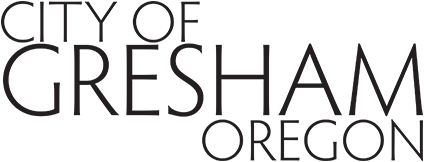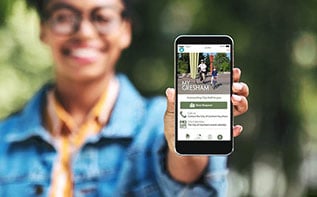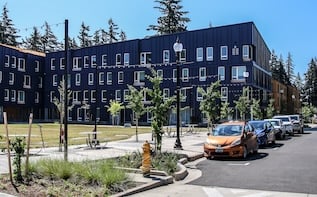- Home
- Services
- Garbage and Recycling
- Recycle at Home
Recycle at Home
Gresham garbage haulers offer curbside recycling service to collect paper, plastic, glass and yard debris for single family and multiplex (2-4 units) homes.
What items can be recycled curbside?
- Mixed paper and cardboard
- Scrap metal and cans
- Plastic bottles, tubs and buckets
- Glass bottles and jars on the side
- Batteries (when prepared for disposal)
Multi-family (5 or more units) recycling
Recycle guide
- English
- Español (Spanish)
- Pусский (Russian
- Ayisyen (Haitian Creole)
- Kiswahili (Swahili)
- Ukrainian
- Somalian
- French
- Find a recycler (Metro recycling guide)
- Call Metro at 503-234-3000.
Other waste resources
Property owners and managers
We are here to help
Batteries can spark and cause a fire when not handled properly. Residential customers can now safely dispose of batteries with weekly curbside collection service. Learn more about battery collection.
Money in the can
Oregon’s bottle and can refund value is now 10 cents per container. The state has expanded the types of refundable containers.
Refundable containers include
- Coffee/Tea
- Kombucha
- Energy and sports drinks
- Hard cider
- Juice
- Full list of containers
Not included
- Wine or hard alcohol
- Milk – dairy or plant-based
- Infant formula
- Meal replacement drinks
Returns made easy
Fill up a green BottleDrop bag with your Oregon deposit containers and earn as much as $5 to $10 a bag.
More information
Residential recycling in Gresham uses a two-sort system:
- Glass in one bin.
- Paper, plastic, metal in the other.
Recycle guide
- Garbage and recycling service for houses and smallplexes
- Servicio de basura y reciclaje para casas y pequeños complejos
- Услуги по сбору мусорa и переработки отxoдoв для домов и малых комплексов
Items collected
- Paper
- Included: Egg cartons, cereal and shoe boxes, junk mail, phone books, magazine, newspapers, paper rolls, cartons and flattened cardboard.
- Not included: Coffee cups, take-out food containers, paper plates, pizza boxes, frozen food boxes, coated paper food boxes, paper towels, napkins and facial tissue.
- Plastic
- Included: Plastic bottles and jars (6 ounces or larger), milk or juice jugs, tubs (6 inches or larger) and plant pots (4 inches or larger).
- Not included: Plastic film, cups, take-out containers, disposable plates or cutlery, bubble wrap and latex gloves.
- Metal
- Included: Clean steel, aluminum and tin cans with lids, clean aluminum foil, trays and plates and small scrap metal. Metal items (smaller than 30 inches and less than 30 pounds).
- Not included: Chains, wire hangers,
- Glass
- Included: Glass food and beverage bottles and jars.
- Not included: Drinking glasses, flower vases, light bulbs, windows and broken mirrors.
Note: Batteries are now collected with weekly service. Battery collection instructions.
Collection day reminders
- Set out containers and roll carts by 6:00 am on collection day.
- Place containers within 3 feet of the curb and leave a space of 3 feet between carts.
- Place carts 10 feet from cars, mailboxes, basketball hoops, trees and other stationary objects.
- Remove carts and containers from curb within 24 hours, preferably the evening of pick-up day.
Become a certified recycling expert
- Recycling 101:Protect natural resources by learning about recycling, composting and waste reduction with Recycling 101, an online, self-paced course created in partnership with the Association of Oregon Recyclers.
- Become Master Recycler:Take an eight-week course on the latest information on consumption, compost and recycling. Then, promise to volunteer 30 hours to share what you learned with neighbors, coworkers and community.
Reduce, reuse and prevent
Reduce, reuse and recycle is more than a slogan. At home, we encourage everyone to reduce, reuse and recycle, in this order of importance.
How to reuse and waste less
- Use reusable grocery bags, coffee mugs and lunch containers so you don’t throw away after one use.
- Reuse items like jars, bags, gift bags and tissue paper.
- Buy in bulk when possible. Bulk flour, nuts, cereal etc. can go home in one plastic bag instead of a bag and a box.
Food waste prevention
- Learn how simple actions like proper food storage and meal planning can help you reduce food waste and address climate change. Read more about the Eat Smart Waste Less program.
Buy used and donate more
- When you want to buy something, ask: "Do I really need it or can I make it at home?" Consider borrowing or renting equipment.
Repair items instead of buying new
- Repair what you can, donate usable items, and purchase used items. Bring items to a free Repair Cafe.
Yard debris alert
What goes in yard debris
Do not put in yard debris
Yard debris tips
- Setting out a bundle instead of a cart? Be sure bundles are no more than 3 feet long and 18 inches in diameter.
- Extra bundles and large paper bags will be an additional $4.43 per bundle/bag.












